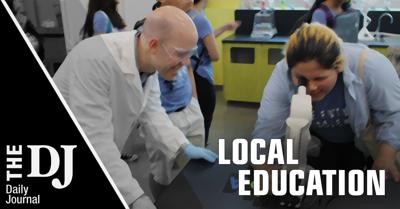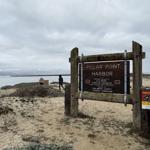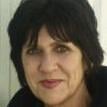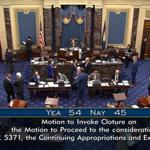The debate around ethnic studies has found its way to the San Mateo Union High School District after more than 800 emailed letters were sent to district officials demanding a review of its curriculum, which some say tells students what to think rather than how to think and potentially pins people against each other based on identity.
The district’s ethnic studies curriculum wasn’t on the agenda for last Thursday’s Board of Trustees meeting but officials were forced to address the issue after hundreds of parents and community members shared two separate concerns. Some alleged that the district’s courses minimize the plight of Jewish people. Alliance for Constructive Ethnic Studies, a nonpartisan coalition of 10,000 parents, teachers and community members from varying ethnic, political and religious backgrounds, argues the curriculum uses a narrow ideology that tells students what to think.
ACES co-founder Elina Kaplan notes the group fully supports teaching ethnic studies. But the group, which was largely behind the email campaign lobbying district officials on the matter, is advocating for a constructive ethnic studies model that highlights the achievements of marginalized groups, allows students to discuss racism and discrimination and equip them to analyze issues from a variety of viewpoints.
“We believe that Ethnic Studies (ES) is an important part of high school education. We also believe that ES should build bridges of understanding, confront racism, celebrate ethnic accomplishments, and expose students to multiple perspectives,” read a letter from ACES sent to the district.
Members of the Board of Trustees acknowledged the concerns while showing varying support for the district’s current program and for a lead administrator behind its development, Dr. Samia Shoman, who has come under scrutiny for the roles she has played in helping to craft similar programs.
Trustee Robert Griffin encouraged people to sit in on the classes, as he did, to learn more about the lessons while board President Greg Land said Shoman had his “unwavering support.”
Board Vice President Ligia Andrade Zúñiga, also a strong supporter of Shoman, said a teacher of hers began leading similar lessons when she was in high school and was ultimately fired after community members expressed outrage. The firing, she said, left her and her classmates feeling wronged.
“It doesn’t have anything to do with removing anyone from being represented or validated. It has to do with making sure everyone is validated and everyone has an equal voice,” said Andrade Zúñiga before adding that both of her sons “received so many gifts from the program.”
Given that the community has expressed concerns and feels unheard, as explained by Trustee Jennifer Jacobson, officials agreed a study session would be helpful. That discussion will likely be scheduled in the coming weeks, Superintendent Randall Booker said in an email.
“As a parent myself, I understand the frustration that other parents feel when they have genuine concerns and they feel they aren’t being heard by those in a position of oversight,” Jacobson said.
State versus local curriculum
All high school students will be required to complete an ethnic studies course to graduate starting the 2029-30 school year, following the signing of Assembly Bill 101 in 2021. Gov. Gavin Newsom vetoed an older version of the bill after many raised concerns the state’s proposed curriculum was problematic and minimized the histories of a number of groups, including Jewish people.
The initial draft, dubbed the Liberated Ethnic Studies Curriculum, was revised multiple times before the state’s current ethnic studies model curriculum was adopted. In its final form, the nearly 700-page document continues to highlight the importance of teaching students about the histories, contributions and struggles of marginalized groups with an emphasis on Black, Native American, Latino and Asian American and Pacific Islander communities. It also encourages giving students the tools to analyze systems of power both historically and presently and to become civilly engaged and responsible.
An outline of San Mateo Union High School District’s ethnic studies course, found on the district’s website, states a similar objective. The nine-month course begins by explaining what ethnic studies is and how it affects students personally then moves into discussions around migration, movement and displacement, multiple categories of identity, power and privilege, action and self-determination and finally, application.
Booker said the district’s ethnic studies curriculum is not affiliated with any version of the state’s curriculum. The district first adopted its program in 2016, years before the state’s model was approved, and it was drafted by teachers and faculty from the district who have continued to adjust the material over the years, he said.
Ethnic studies programs were also already adopted by Sequoia Union High School District and South San Francisco Unified School District before that bill was signed into place.
“As a district, we are proud of this work and we are proud that ethnic studies is a graduation requirement, in advance of the state mandate requirement,” Booker said during last Thursday’s meeting. “There is no perfect curriculum. We know that, so we will see flaws and we will talk about it and we will improve. As educators, we are always under a continuous improvement model.”
ACES disputes Booker’s claim the district’s curriculum is unrelated to that of the state. Instead, its members assert the district’s curriculum is similar to the Liberated Ethnic Studies Curriculum by focusing on oppression and victimhood, creating militant activists instead of engaged citizens, according to critiques on the group’s website.
Kaplan pointed to sample slides in which concepts like American exceptionalism, colorblindness when it comes to racial issues and privilege are characterized as universally bad without providing alternative viewpoints.
While open to, and supportive of, students speaking honestly about the hardships communities have faced, Kaplan said the group wants to see students discuss the positive histories of ethnic groups as well. From what she’s seen, students do discuss contributions briefly but only in the context of “resistance.”
And of specific concern for the group is Shoman, the district’s manager of English Learner and Compliance Programs, according to a draft of the letter sent to the district en masse.
Shoman also helped craft the initial draft of the state’s Liberated Ethnic Studies Curriculum and is an associate with Acosta Educational Partnership, a firm offering professional development and curriculum support with expertise in ethnic studies. Her multiple hats has led ACES to accuse her of having a conflict of interest and to ask that the district remove her from overseeing its ethnic studies program.
Shoman did not respond to a request for comment but, in addition to trustees, district officials including Booker and multiple ethnic studies teachers threw their full-hearted support behind Shoman and their curriculum during the board’s most recent meeting on Feb. 9.
“We, I, stand behind Dr. Shoman and the support she has provided to advance the cause of ethnic studies in our district and state including her services on the Ethnic Studies Model Curriculum Advisory Committee from 2019 to 2020,” Booker said during the meeting. “Dr. Shoman supports and facilitates the process but does not develop or write the curriculum. That is the role of our teachers.”
ACES also called that assertion into question, however, after multiple teachers thanked Shoman for her support in crafting the district’s course.
Booker acknowledged that the conversation around ethnic studies is expected to continue and committed himself to “keep the conversation alive” while advocating for a study session on the matter.
Though unsure of what the study session will entail, Kaplan said she appreciates the district’s openness to dialogue and that she believes the district and her organization have the same objective.
“We would really like to engage with the district on the actual substance of the issues,” Kaplan said. “Everybody’s on the same page that we want what’s best for the students and we’re not that far apart in that we want — a robust ethnic studies course, so let’s work together on it.”































(6) comments
i urge the district to sponsor and encourage a trip to the south starting with a visit to the motel where mlk was shot Take them to see black and all white water faucets and rest rooms the desegregation decided in the south movies blacks up stairs etc. let them experience this way of life. i tauught 500 kid Spanish at Asheville high school we had a riot kids leaving class monday after a group of protesters told them leave or we will pull you 0ut. the protestors were arrested possesing firearms. I had six blaclk and si white xcheerleaders that were called names when we visited non desegregated high schools .i told one woman we brought them here to cheer and they will cheer so move your chairs. being from california I was more accepting of color then and now what a lesson I learned from being educated at csm and UCD here in california. explain segragation as well as integration as it is misunderstood all around her and the south. one faculty meeting we were told to call kidb sblack not colored as we were brought up that way give them the experince of living black here . good luck and God bless all of you for teaching this class.
i hope the "ethnic" groups include people who came through Ellis island.
Do you mean those who initiated this great nation? Are you kidding? The ethnic groups came here because where they came from was too good to be true and had an urgent need to oppressed here.
if you mean "anglos" who "initiated" then the answer is no. I mean the hungry and poor mentioned on the statue of liberty.
.there is a site i lived through the a969 asheville high school riots i was asked to write a couple of articles then which i did my cheereaders aere on there and some are still my fb friends now,.
i was educatedatiddlebury college middlebury vermont 6 weeks at middleburyand the rest at middlebury college middlebury vermont i got my M>A< there middlebury then madrid spain.
Welcome to the discussion.
Log In
Keep the discussion civilized. Absolutely NO personal attacks or insults directed toward writers, nor others who make comments.
Keep it clean. Please avoid obscene, vulgar, lewd, racist or sexually-oriented language.
Don't threaten. Threats of harming another person will not be tolerated.
Be truthful. Don't knowingly lie about anyone or anything.
Be proactive. Use the 'Report' link on each comment to let us know of abusive posts.
PLEASE TURN OFF YOUR CAPS LOCK.
Anyone violating these rules will be issued a warning. After the warning, comment privileges can be revoked.